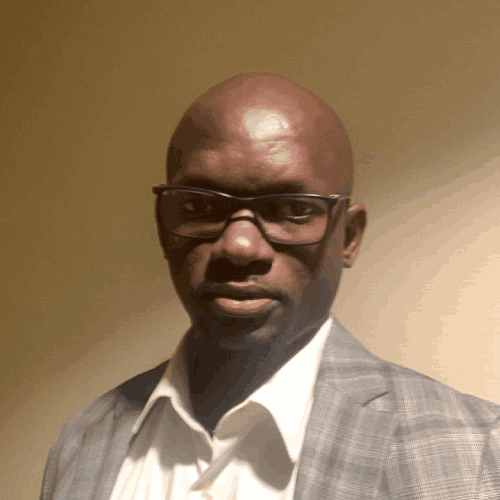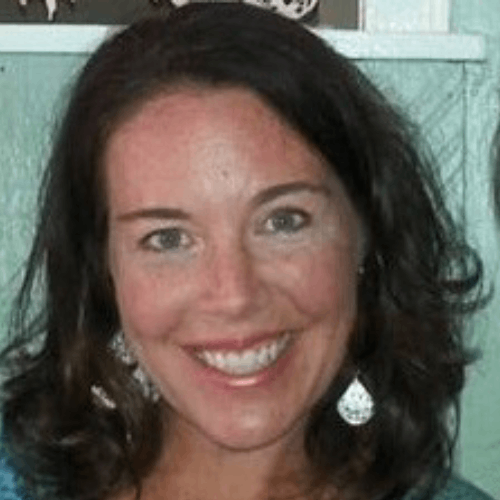


Dr Abdoulaye Ndiaye is Assistant Professor in American studies at Cheikh Anta Diop University in Senegal, and Chair of the Senegalese American Studies Association.
Professor Nicole Coffey Kellet is a Professor of Anthropology at the University of Maine, Farmington in the US. She teaches courses on gender, medical anthropology, health, environmental justice, Latin America, especially Peru, and Uganda. She’s been at Farmington for the past 13 years.
“This interesting Virtual Exchange collaboration came about via our colleague, Dr Linda Beck, Associate Dean here at Maine, Farmington”, explains Nicole. Linda and her husband have extensive experience of living and working in Africa and especially Senegal.
They have done research there over the years, and their connections were interested in Environmental Justice. “Abdoulaye and I didn’t know each other beforehand and I’ve never been to Senegal myself. But it didn’t matter!”
The content and structure of the virtual exchange
“It all went really well’, chimes in Abdoulaye. “We worked virtually, of course, and the West African research centre in Dakar, Senegal provided the space for this to happen. A group of 12 students took part. Regular meetings online enabled the students to engage with themes including deforestation, overfishing and erosion to name a few. The groups worked together to come up with material and presentations aiming at resolving these issues.”
Nicole adds, “Students could pick options of their choice as Abdoulaye explained, and explored Senegal vs the US to understand the histories, economies and cultures to see the differences between our countries.”
“But also, the participating students came from different backgrounds and this led to some interesting cultural perspectives. There were students with backgrounds in literature, anthropology and environmental science, which meant they all approached it from their own viewpoint. It was a very nuanced and enriching experience.”
The spiritual aspect of the exchange
Abdoulaye explains, “My Senegalese students essentially live in different parts of the country – some in rural and others in coastal areas. They see erosion and deforestation daily in their lives, therefore they chose the topic according to what was affecting them personally.”
Nicole adds, “For my students, the spiritual aspect was a real ‘aha’ moment. They were completely fascinated by this and had never thought in that way previously; how losing the forest is part of a sacred space for prayer or spirits. As a consequence, they began to understand it’s not just about land use and farming or fishing but goes deeper than that.”
Abdoulaye concurs and continues, “Yes, this really added a new dimension to our collaboration. In Senegal, 95% are Muslims, 4% Christian and 1% have a spiritual belief, especially in certain areas in the remote forests. Here, religion is connected to nature and the ancestors, and deforestation, for them, is connected to what they believe in.”
The nuts and bolts of the exchange
Nicole and Abdoulaye’s VE lasted about 5 weeks, but both agree that this was not really long enough for the students to understand each other’s cultures and backgrounds and to get to know each other.
“We anthropologists go into the field for a year before understanding anything on a deep level, laughs Nicole, ‘so although the topics were very interesting, the takeaways for my students were the little details which they found astounding. The cultural differences such as discussing the cost of courses and how cheap it is in Senegal compared to what students pay in the US for their education. In fact, we are working to understand how we can keep them connected in some way.”
On a practical level, the groups were made up of four US and two Senegalese students, as the numbers worked out in this way. They met synchronously and asynchronously over the duration. Time differences were a challenge of course, but were managed quite well.
Impact on the students
Nicole explains that her cohort were concerned about their grade and final project, therefore there was a degree of stress for them. And expectations were a little different. The US students were expecting some short bullet point explanations in reply to questions whereas the Senegalese students were sending back long essays. It meant the US students were less open to enjoying the cultural experience.
Both Abdoulaye and Nicole agree that next time they will need to clarify those expectations.
Some curious cultural differences
Abdoulaye explains that his students were more prepared in terms of background, due to his American literature and civilization background. They weren’t concerned about grades, as they knew they’d get extra points. This enabled them to be more relaxed about the whole thing. The experience was more enjoyable and it freed them up to explore.
“They were so eager to meet the US students as most, as I said before, come from rural areas. So even just coming into Dakar to do the VE was exciting for them. But we are also very curious here in Senegal, and we ask many personal questions, he laughs, ‘so some of the American students were quite taken aback by this.”
“But, says Nicole, ‘it was really good for them to see this different approach.”
It was a massive learning curve for all, students and teachers alike, awakening a degree of curiosity on both sides. Nicole says her students loved meeting other students they would never otherwise get to meet as many Maine students are not able to travel for financial or other reasons.
If there’s a next time……
Abdoulaye stresses that next time, both he and Nicole will focus more on preparing for the cultural aspect, and they will focus on bachelor and master students. But, he says that feedback from the students was overwhelmingly positive.
“It’s definitely worth it despite the extra work, he says, ‘Beyond the academic aspect, but from a human and cultural perspective it was a very positive experience.”
